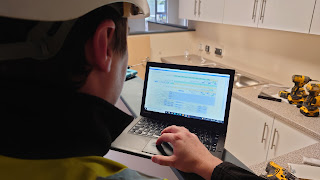with 21 years in construction and still learning different techniques, skills and with a thirst for knowledge is giving me an edge to assist fellow house builders in building better together. Cleaner, brighter with a sustainable future. "A road to success is always under construction "
Subscribe to:
Post Comments (Atom)
How Do You find Expensive Air Leaks In Your Home? Air leaks can occur from gaps and cracks in the building's fabric. Air will travel...

-
Passive houses work by making sure that heat is not lost through the fabric of the build. These houses are built according to a set of des...
-
Is Passive House The Go-to Standard? What we look for in our homes has changed dramatically over the last few years. With working from h...





No comments:
Post a Comment